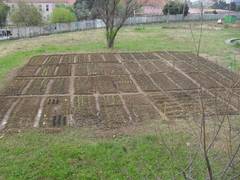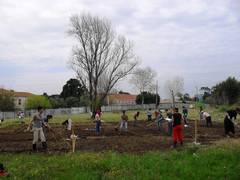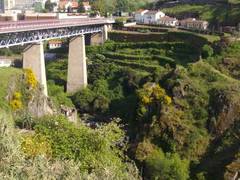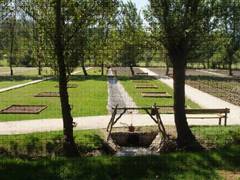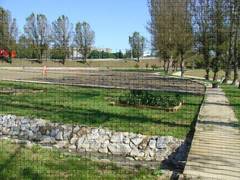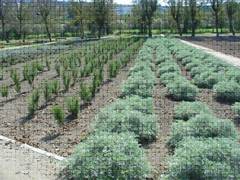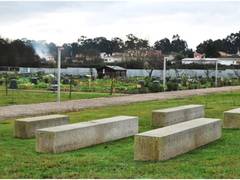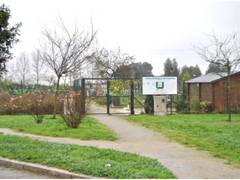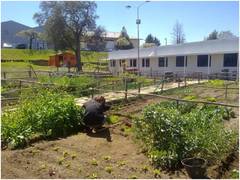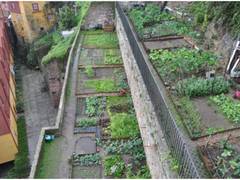Case studies Portugal
DHA-Sol allotment at LNEC campus
The AG is located within LNEC campus and has an area of about 400 m2, divided in 16 plots. The main objectives of the on-going research are (concerning the ecological aspects):
- analysis of the impacts of AGs in the city, i.e. their environmental footprint to soil and water contamination (monitoring, modeling and future scenarios);
- analysis of the impacts of different production system (organic and conventional)
- contribution to the development of guidelines for sustainable development and management (reduction of environmental impacts) based on the case-study results (Water Framework Directive indicators will be used);
- analysis of exposure of AGs to contaminations (roads, etc.).
Urban Allotment gardens in Portugal – National Inventory.
This research intends to explore the concept of the Portuguese urban allotment garden, its evolution, and its place in the framework of urban planning policy. The national inventory aims to provide a characterization of UAG and so providing non existing information about this growing activity. We have proposed to look at the existing programmes which set a ground for the creation and development of UAG, to its distribution throughout the country and to their typologies and spatial characteristics.
Landscape potencial for Allotment Gardens in the city of Vila Real
This research investigates how Urban Allotment Gardens can be integrated in the urban perimeter of the city of Vila Real, Portugal. It focuses on the landscape potential, considering the study of urban landscape planning requirements, ecological and socio-cultural criteria to the establishment of new UAG. The work follows a methodology of landscape analysis and synthesis aiming to find suitable sites and to develop an innovative design proposal to a selected site.
Ost Occupancy evaluation and design proposal for expanding Allotment Gardens in the city of Guimarães
This research aims to develop a base of knowledge about the UAG of Guimarães to instruct a design proposal for its expansion, according to the user's needs and preferences, scenic quality and other social, environmental and ecological constrains. In order to do so it will be conducted an in-depth characterization of the existing UAG and Post Occupancy Evaluation.
LIPOR allotment gardens programme and its contribution to the development of new designed models of urban allotment gardens
- Horta de Crestins
- Horta da Maia
- Horta da Quinta da Gruta
- Horta de Aver-o-mar
- Horta Municipal de Aldoar
- Horta Municipal da Condomínia
- Horta de Aldoar
- Horta de Custóias
- Horta de Leça da Palmeira
- Horta da Senhora da Hora
- Horta da Fonte Antiga
- Horta de Subsistência do Castêlo da Maia
- Horta Parque da Vila
- Horta de Vairão
- Horta Social dos
Albergues Nocturnos do Porto - Horta da Tecmaia
- Horta do CICCOPN
- Horta da Escola EB 2,3 da Maia
- Horta do ALADI
- Horta de Espinho
- Horta da Lada
- Horta do Centro Social e Paroquial da Sé

